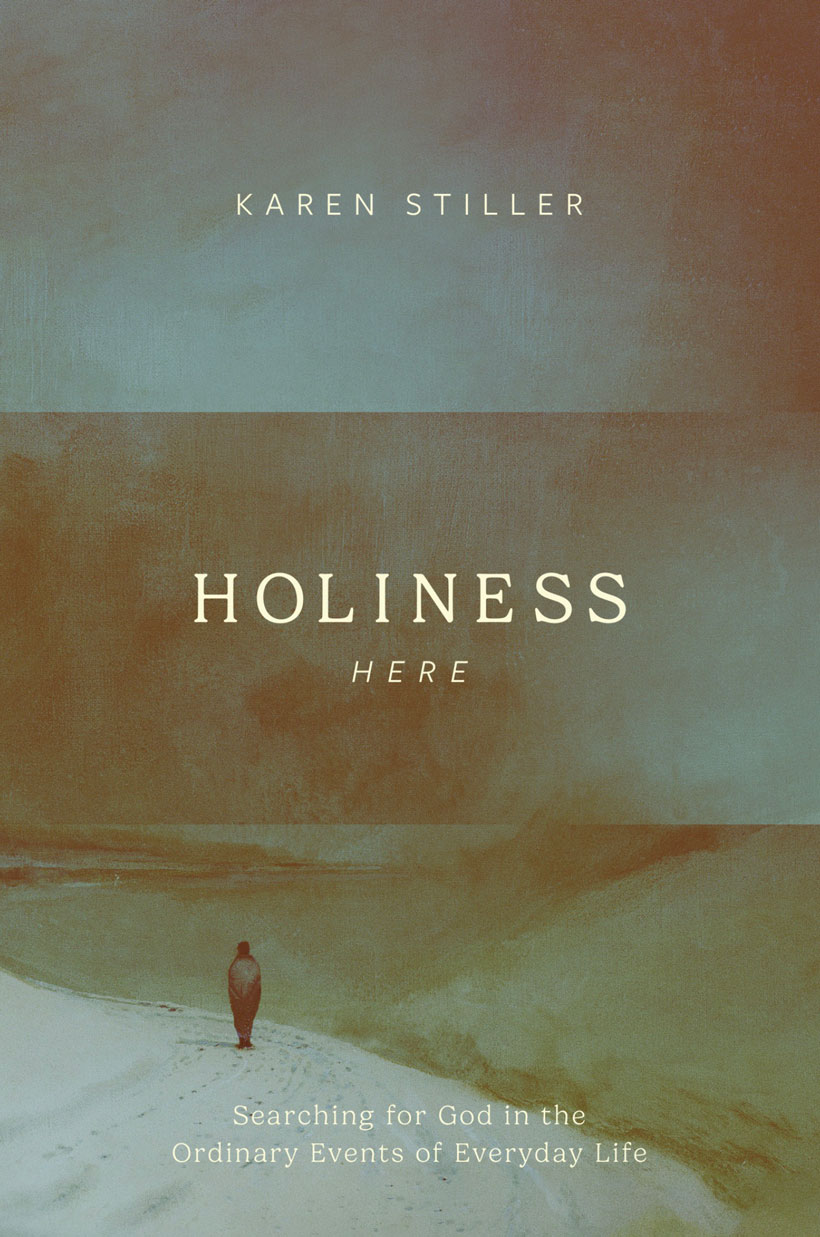Holiness Here
By Karen Stiller
NavPress, 192 pages, $16.99
Holiness is not a hot topic in contemporary culture. “Holiness has a public relations problem, even within the church,” writes Karen Stiller, a minister’s widow. “Being holy is deeply associated in our culture with being a pain in the butt rather than a balm to the soul.”
God calls his followers to be holy as he is holy (Lev. 19:2; 1 Pet. 1:16). We are changed by the new life bestowed upon us by Jesus, and we are changing. Although most of us would prefer mountaintop experiences, Stiller points out that holiness “is often ordinary and right there in front of us. Holiness can have a touch of the monotonous.”
Stiller focuses on several words — fruit, body, money, hospitality, humility, beauty, church, remembering, and sorrow — to explain how holiness might become real in our lives.
Stiller is courageous and even blunt in her chapter on money. Most of us, including in church circles, are uncomfortable talking about money. She cites an online article “about how money quietly poisons our faith,” and further says that “one of the problems with our preoccupation with money is that money creates a false sense of security.”
Stiller admits that money has been a difficult area in her spiritual life and that she has often been “a grouchy, reluctant giver.” Some people, particularly parishioners, often believe clergy and their spouses are above such worldly struggles. It’s refreshing and encouraging to find that almost everyone struggles with this area of holiness.
Stiller brings a similar focus to humility: “Sometimes we learn humility because we seek it. More often, it finds us sitting around thinking we are a little bit fabulous.” Humility seems to be sorely lacking among many Christian leaders in a world that values celebrity above all else.
In contrast, Stiller writes about how holiness might play out: “We can be the people who don’t suck up all the oxygen in the room, but instead carry the light of Jesus in front of us like a tiny lit candle. This is very hard, until it somehow and at some time gets easier.” Our attempts at selflessness highlight our need of God’s grace, and true humility can acknowledge our lack of answers. After all, “A belief in our own spiritual knowingness is unpleasant for ourselves and others.”
A chapter on church might have been upbeat to the point of pollyannaish or so brutally honest that all hope would be abandoned. Stiller found the truth in the middle: “When leaders fall and pastors fail in the spectacular ways they sometimes do, a thick fog sinks over the church. … They do such damage.”
In the same chapter, Stiller writes how much we Christians need the church: “We now belong to something so much bigger and more beautiful than our own individual lives. We grow best when we are together and turned toward Jesus, no matter how annoying it can all be.”
Stiller almost makes a case for the Daily Examen in “Remembering.” She writes, “We will need to remember when we saw God so closely or felt him like the gentlest of breezes, because there will be so many times when we feel like God is distant.” Or in Ignatian terms, consolation helps us live through desolation. Stiller further explains, “Remembering is not going backward, but actually a way we can move forward. Our memories of encounters with God’s holiness can sustain us for our own journey deeper in and further out, into our own holy callings in the world.”
Stiller’s penultimate chapter, “Sorrow,” is her most poignant. Her husband, Brent, died suddenly, and she tells the story in a loving and respectful manner that acknowledges that while all will encounter sorrow in their Christian journeys, a loving God will be there with them.
“I came to understand early on that God’s comfort can arrive most obviously, for me at least, in the shape of other people,” she writes. “The church, family, friends, neighbors, the guy who shovels our driveway — they all emerged from the valley sides carrying tiny bits of light. The Shepherd was present.”
The faith that her husband had proclaimed in his ministry and their family had lived carried them in their time of need. Stiller does not resort to easy answers or trite spiritual slogans as she recalls the story of Jesus, the sisters Mary and Martha, and their brother, Lazarus: “There were no answers to the why, just the reminder of Jesus who cried with his friends who grieved.”
Holiness Here is worthwhile because Jesus’ modern-day disciples are shaped most often by following leaders who freely admit their fallenness while seeking holiness in their everyday lives.





